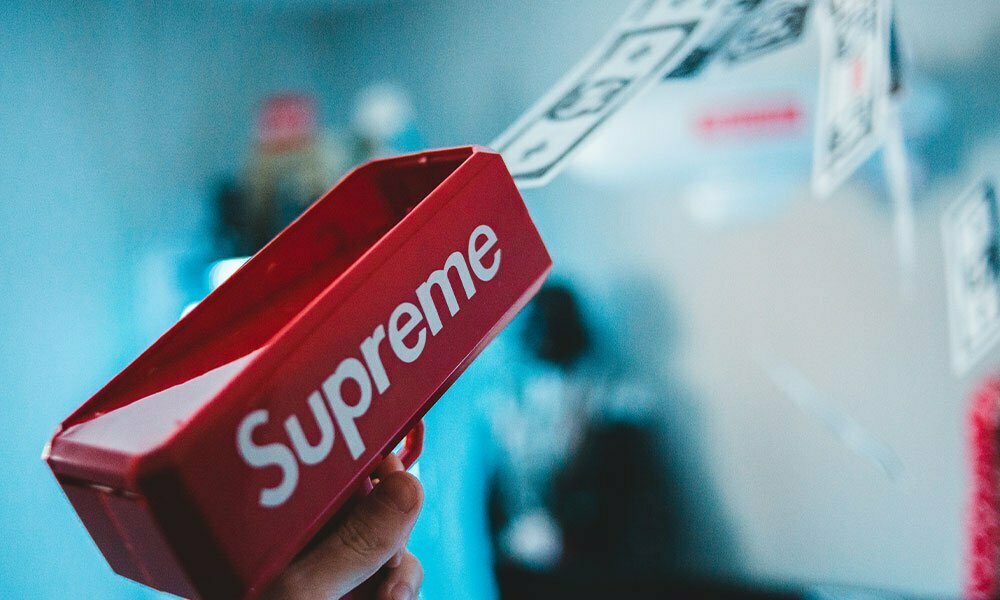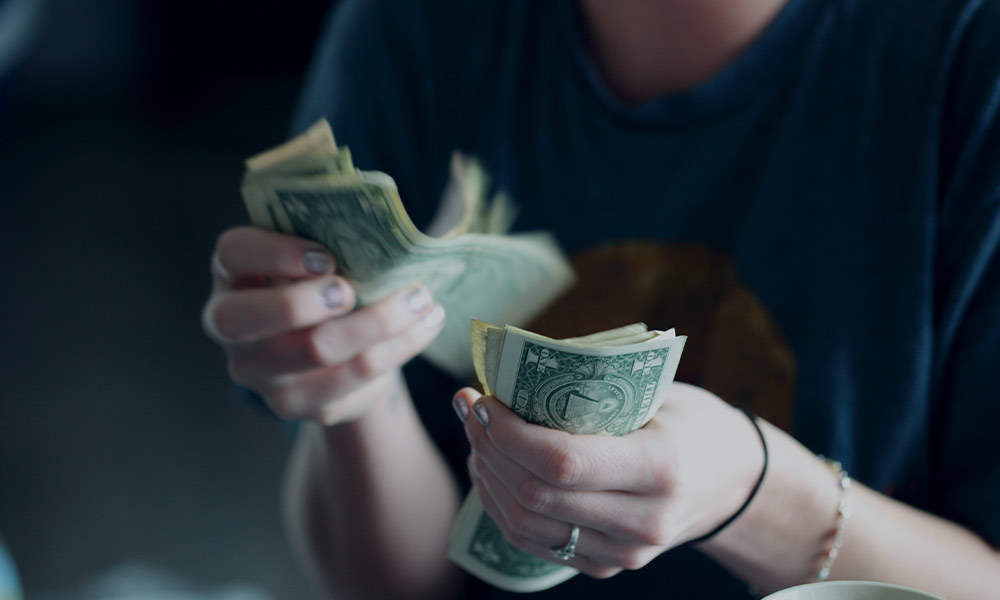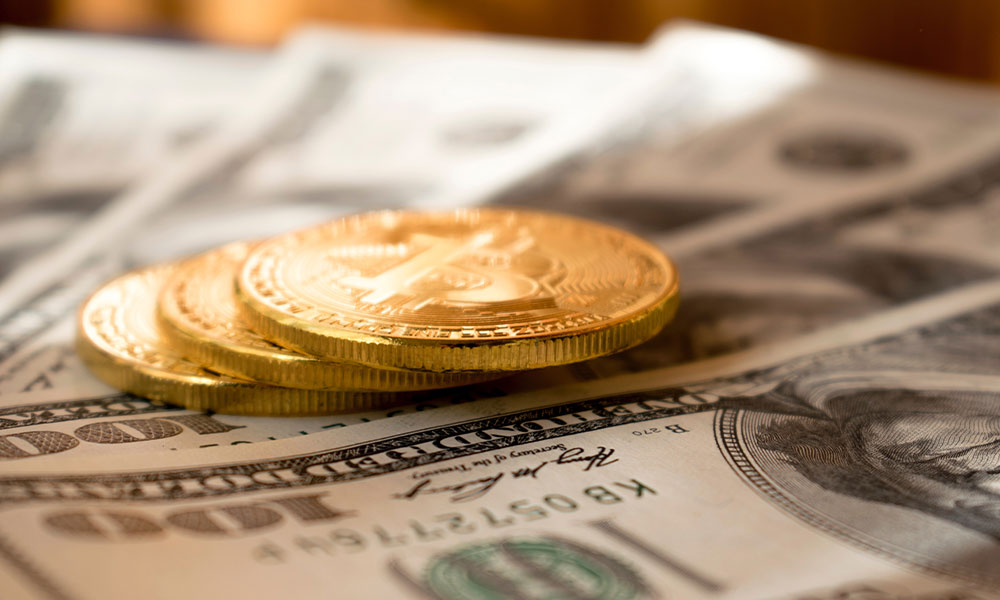10 Innovative Ways to Generate Income with Your Music
The music industry is highly competitive, and finding innovative ways to generate income is essential for musicians looking to remain financially stable while pursuing their passion. Fortunately, thanks to technology and new business models, there are many options available for artists looking to monetize their work beyond traditional record deals and live touring. In this article, we’ll explore 10 innovative ways that musicians can generate income from their music, from selling merchandise to creating exclusive content for their online fans. With these strategies, musicians can make the most of their talent and creativity while creating stable, sustainable income sources.
Selling Merchandise: How to Monetize Your Musical Brand
One of the most traditional and effective ways to monetize an artist’s musical brand and thus generate extra income is through the sale of merchandise. Merchandise can include anything from t-shirts and caps to stickers, mugs, and other products that bear the artist’s brand or logo. These products can be sold at concerts, online, and in physical stores.
Merchandise not only can generate additional income for musicians, but it also helps to build and maintain a closer relationship with fans. By purchasing merchandise, fans feel more connected with their favorite artist and can show their support in a tangible way.
To make the most of selling merchandise, it’s important to create high-quality, appealing products that fans will genuinely want to buy. It’s also important to choose the right platform to sell your products. Options could range from your own online store to e-commerce sites like Etsy or Amazon.
In addition, live merchandise can be an effective way to boost income during concerts. Exclusive products that are only available at shows can generate special interest among fans and help to increase the amount of sales at live events.
Attractive Merchandise Design: How to Create Products Fans Want to Buy
Merchandise design is an important aspect of selling products related to a musical artist. While the quality of the product is important, the design is what catches the fan’s eye and makes them want to purchase it. Therefore, it’s essential for artists to pay attention to the aesthetics of their merchandise products.
To create attractive designs, artists can work with graphic designers or do it themselves if they have design skills. It’s important to ensure that the design is consistent with the artist’s image and musical style. If an artist has a distinctive logo or symbol, this can be incorporated into the merchandise product designs to create a sense of cohesion in the brand.
In addition, artists may consider collaborating with graphic artists or illustrators to create unique and original designs that fans won’t find elsewhere. This not only attracts fans but can also help to create a community of artists and creative collaborators around the musical project.
Color choice is also important in making the design appealing and eye-catching. Artists may consider using their brand colors or using colors that are popular among their fan base. They can also experiment with different color combinations and designs to create a variety of merchandise products.
Distribution and Sales: How to Choose the Right Platform for Selling Your Merchandise
Choosing the right platform for selling merchandise is an important step for any musical artist looking to monetize their brand and products. There are a variety of options for the distribution and sale of merchandise, and each has its own advantages and disadvantages.
A popular option is creating your own online store, which allows artists to have complete control over their brand and products. Online stores can also be integrated with social media and other marketing channels to help drive sales. However, setting up an online store can be costly and requires time and effort to manage.
Another option is using e-commerce sites like Etsy or Amazon, which offer an established platform for selling products. These sites also have an established audience that can help attract new customers. However, these platforms may have fees and commissions that eat into the artist’s profit margins.
There are also in-person merchandise distribution and sale options, such as at live events or in physical stores. This can be an opportunity to attract local fans and increase the artist’s visibility. However, this option may require greater logistical effort and inventory management.
Ultimately, the choice of the right platform for selling merchandise depends on the artist’s needs and goals. It’s important to consider costs, inventory management, audience, and other factors when choosing the right sales platform and setting the selling price for your musical brand. By selecting the right platform, artists can maximize the potential of merchandise sales as a source of additional income and a way to build closer relationships with their audience.
Live Merchandising: How to Boost Your Revenue at Concerts with Exclusive Products
Live merchandising is an effective way to increase an artist’s income during concerts and live events. Fans are excited by the chance to get exclusive products from their favorite artists, and live merchandising provides a unique way to do this.
To succeed in live merchandising, it’s important to offer a variety of high-quality products that are appealing and exclusive. Some examples include T-shirts, caps, posters, discs, vinyl records, and other promotional items related to the artist. Additionally, live merchandising products can also be limited editions or exclusive to the event, which increases appeal for fans.
Another important aspect of live merchandising is the presentation of products. Products should be well-organized and attractively displayed to catch the fans’ attention. Merchandise sellers also need to be well-informed about the products and able to answer fans’ questions.
It’s also important to set fair and reasonable prices for live merchandise products. Fans want to support their favorite artists, but they also expect to get fair value for their money. Artists should consider the cost of production and other factors when setting prices for their products.
Overall, live merchandising provides a unique opportunity for artists to increase their income and connect with their fans on a more personal level. By offering high-quality exclusive products and creating an attractive shopping experience, artists can make the most of the potential of live merchandising to increase their income and build closer relationships with their audience.
Creating Exclusive Content: Turn Your Fans into Sponsors
In the music industry, creating exclusive content is an effective strategy for turning music fans into sponsors and generating additional income as an artist. Fans are always looking for exclusive access to content and unique experiences that aren’t available to the general public. Artists can leverage this by offering exclusive content through subscription platforms, such as Patreon, OnlyFans (yes, it’s not only used for what you’re thinking of), among others.
The types of exclusive content that can be offered are diverse and depend on the artist and their creativity. Some examples include:
- Exclusive access to recording sessions, rehearsals, and concerts
- Free downloads of songs and exclusive albums
- Behind-the-scenes videos and documentaries about the artist’s creative process
- Live question and answer sessions
- Exclusive merchandise products for subscribers
To create effective exclusive content, artists need to know their audience well and understand what type of content they would like to see. It’s important to maintain open dialogue with fans and directly ask them what they would like to see.
Once exclusive content has been created, it’s important to establish a clear and fair pricing structure for subscribers. Prices can vary depending on the type and amount of content offered, and it’s important to ensure that the prices are affordable for fans.
Finally, artists need to effectively promote their exclusive content through their social media and other marketing channels. It’s crucial to create a promotion strategy to attract fans and convince them it’s worth subscribing to.
Types of Exclusive Content: Creative Ideas for Offering Your Fans Special Content
Offering exclusive content to fans is an excellent way for musical artists to build loyalty within their fan base and generate additional income. Here are some types of creative exclusive content that artists can offer:
- Access to live recordings: Offering exclusive access to live concert recordings is an effective way to engage fans and make them feel like they’re at the concert. Recordings can include the artist’s commentary on the performance or even interviews with band members.
- Live question and answer sessions: Fans always have questions for their favorite artists, and a live question and answer session is an excellent way to directly answer their questions. This also allows fans to get to know the artist better and feel more connected to them.
- Free download of exclusive digital music: Fans are always on the lookout for new songs to listen to, and offering free downloads of exclusive digital music is an excellent way to keep them interested and engaged. This music could be an alternate version of an existing song, an unreleased song, or a live version.
- Behind-the-scenes content: Fans always want to know what life is like behind the stage. Offering exclusive behind-the-scenes access, such as rehearsal or recording videos, can be a great way to show fans how the music is made.
- Exclusive access to social media content: Artists can offer exclusive access to content on their social media, like Instagram stories or Facebook posts, just for their exclusive followers. This could include updates on new songs, exclusive videos, or even merchandise discounts.
- Exclusive access to meet and greets: Meet and greets are an excellent way for fans to meet their favorite artists in person. By offering exclusive access to meet and greets, artists can allow fans to get to know them on a more personal and intimate level.
Platforms to Monetize Exclusive Content: How to Choose the Best Platform to Offer Your Exclusive Products
Once a musical artist has decided to offer exclusive content to their fans, it’s important to choose the right platform to monetize that content. Here are some popular platform options for artists to sell their exclusive content:
- Patreon: Patreon is a popular platform that allows artists to offer exclusive content to their followers in exchange for a monthly fee. Artists can offer different levels of membership, each with access to different types of exclusive content.
- OnlyFans: OnlyFans is a platform that has become popular among musical artists in recent years. Artists can offer exclusive content, such as photo shoots, behind-the-scenes videos, and unheard music, to their followers in exchange for a monthly fee.
- Bandcamp: Bandcamp is an online music sales platform that allows artists to sell their music and merchandise directly to fans. Artists can also offer free downloads of exclusive music to their followers if they wish.
- YouTube: Artists can also use YouTube to monetize their exclusive content. They can create an exclusive channel just for their followers and offer exclusive content in exchange for a monthly fee. They can also use YouTube’s membership function to offer exclusive content to their most loyal followers.
- Twitch: Twitch is a popular platform among video game streamers, but it can also be used by musical artists to monetize their exclusive content. Artists can offer exclusive live concerts, live question and answer sessions, and more to their followers in exchange for a monthly fee.
It’s important to research each platform to determine which one is the best for the artist and their fan base. Each platform has its own advantages and disadvantages, and it may depend on the type of exclusive content that is being offered. Ultimately, choosing the right platform can help artists monetize their exclusive content and build loyalty with their fan base.
Promotion Strategies: How to Let Your Fans Know About Your Exclusive Content Offers and Increase Your Patron Base
For musical artists, promotion is key to attracting new fans and keeping existing ones interested in their music. Here are some promotional strategies that can help you reach your audience and increase your patron base:
- Create exclusive content: One of the best ways to keep your fans interested is to offer exclusive content. This could include unreleased songs, behind-the-scenes videos, question and answer sessions, free downloads, and more. Be sure to promote these offers through your social media and email so your fans know they are available.
- Participate in live events: Live performances are a great way to connect with your fans in person and promote your music. Make sure to post the details of your upcoming shows on your social media and email, and consider offering discounts or special benefits for patrons who attend.
- Use social media: Social media is a powerful tool for promoting your music. Use platforms like Facebook, Instagram, TikTok, and Twitter to post updates about your work, share behind-the-scenes photos and videos, interact with your fans, and promote your exclusive content offers.
- Collaborate with other artists: Collaborating with other artists can be a great way to reach new fans and expand your patron base. Look for opportunities to collaborate on recordings, live shows, and joint promotions on social media.
- Offer exclusive benefits to patrons: Make sure to offer exclusive benefits to your patrons, like early access to new songs, discounts on merchandise, or free tickets to live shows. This will make your fans feel special and give them another reason to support you.
- Maintain constant communication: Keeping your fans informed about your work is key to keeping them interested and engaged. Be sure to send regular updates by email, post regularly on social media, and respond to comments and questions from your fans.
Licenses and Synchronization: How to Maximize Your Compositions in Other Media
Licenses and synchronization are two important tools for composers to make the most of their works in other media. Here’s what you need to know about these tools and how they can benefit you.
Music licensing is a legal contract that grants permission to use a musical work in a specific medium. For example, if a company wants to use a song in a television commercial, they must obtain a license to use the music. The purpose of a license is to ensure that copyright owners are compensated for the use of their work.
Music synchronization, on the other hand, refers to the use of music in a visual medium, such as films, television shows, video games, etc. The music can be used to complement and enhance the visual image and dialogue in a medium.
For composers, licensing and synchronization can be very beneficial, as they can generate additional income and increase the exposure of their music. Here are some steps composers can follow to leverage these tools:
- Register your music: The first thing you should do is register your music with a copyright management organization. This will allow you to be compensated for the use of your music in other media.
- Promote your music: It’s important for others to know your music so they can request licenses or synchronizations. Promote your music on all available platforms, such as social media, music websites, and other media.
- Find opportunities: Look for opportunities to license or synchronize your music. There are many companies that specialize in finding music for audiovisual projects, and you can also connect with film directors, television producers, and other industry professionals to find opportunities.
- Consider working with a licensing agency: A licensing agency can help you promote your music and find synchronization opportunities. The agency can also advise you on legal and copyright issues, and help you negotiate the terms of the contract.
How to Register Your Compositions to Maximize Your Licensing and Synchronization Revenues
Registering your compositions is an important step to maximize your licensing and synchronization revenues. Here’s how you can do it effectively:
- Register with a copyright organization: The first thing you should do is register with a copyright organization. In the United States, the most common organizations are the American Society of Composers, Authors and Publishers (ASCAP), Broadcast Music, Inc. (BMI) and SESAC. Each organization has its own registration requirements and fees, so make sure to research which one is available in your country and which is best for you.
- Register each work individually: Register each of your works individually. Each song, instrumental piece, or composition should have its own copyright registration number and be identified as a separate work.
- Use the correct registration form: Each copyright organization has a specific registration form that you need to complete to register your works. Make sure to use the correct form for the type of work you are registering.
- Provide detailed information: Be sure to provide detailed information about each work you are registering. This can include the title of the work, the composer’s name, the publisher’s name, the date of creation, and any other relevant information.
- Keep your records up to date: As you create new works, be sure to register them immediately. Keep your records up to date so you can continue to receive payments for licenses and synchronization as your music is used in different media.
- Register all versions of a work: If you create different versions of a work, be sure to register each version individually. This includes remixes, acoustic versions, and any other variant of the original work.
- Consider working with a music publisher: If you’re interested in maximizing your licensing and synchronization revenues, consider working with a music publisher. A music publisher can help you promote your works, find synchronization opportunities, and negotiate licensing contracts on your behalf.
Finding Licensing and Synchronization Opportunities: Where to Look and How to Apply for Projects in Other Media
Finding licensing and synchronization opportunities for music projects in other media can be a challenging task, but there are some resources and strategies you can use to increase your chances of success.
- Explore online music libraries: Many online music libraries like Musicbed, Epidemic Sound, and AudioJungle offer licensing and synchronization opportunities for composers and music artists. Make sure to research which music libraries are most suitable for your musical style and apply to them.
- Check with music synchronization agencies: There are music synchronization agencies like SynchTank, Songtradr, and Music Gateway that can help you find synchronization opportunities for your compositions. These agencies often work closely with production companies and film and television directors to provide music for their projects.
- Social media and streaming platforms: Social media and streaming service platforms like Instagram, TikTok, and YouTube can be an effective way to promote your music and find synchronization opportunities. Use relevant hashtags and tags to reach specific audiences and consider working with influencers who can promote your music to their audience.
- Participate in music contests: Many music contests offer licensing and synchronization opportunities as part of their prize. Participating in these contests can increase your visibility and give you the opportunity to have your music featured in other media.
- Research film and television projects: You can research film and television projects that are being filmed in your area and directly contact the producers to offer your music for use. If you have a relationship with a music publisher, it can also be helpful for them to establish contacts in the industry.
- Apply to online licensing and synchronization opportunities: There are several online platforms that allow you to directly apply to licensing and synchronization opportunities, like Music Gateway, Broadjam, and Music Xray. These platforms allow you to create a profile and apply to specific opportunities that match your musical style.
Contract Negotiation: How to Ensure You Get the Best Deal Possible When Licensing Your Music for Other Projects.
When it comes to negotiating contracts to license your music for other projects, it’s important to make sure you’re getting the best possible deal for you and your music. Here are some tips to help you negotiate licensing and synchronization contracts:
- Know the value of your music: Before you start negotiating a licensing contract, it’s important that you know the value of your music. Research how much licenses are being paid in your genre and in the type of project you’re interested in. This will give you an idea of how much you should charge for your music and what kind of contract terms you should look for.
- Establish your boundaries: Before you start any negotiation, it’s important that you have clear boundaries. Decide what is the minimum price you would be willing to accept for a license and what terms are important to you. For example, if you want to retain the rights to your music or if you only want to license your music for a limited time.
- Be prepared to negotiate: Before you start a negotiation, make sure you’ve researched as much as possible about the project and the company you’re negotiating with. This will allow you to be better prepared to negotiate and understand what terms are negotiable and which are not.
- Don’t be afraid to negotiate: Don’t be afraid to make a counteroffer if you’re not satisfied with the terms you’re being offered. Companies expect there to be a negotiation, so don’t be afraid to ask for more money or more favorable terms if you think you deserve them.
- Ensure the contract is clear: Before signing a contract, make sure all clauses are clear and are written in a precise manner. If something isn’t clear, ask before signing the contract.
- Get legal advice: If you’re negotiating a significant music licensing contract, it’s advisable to get legal advice from a lawyer specialized in the music industry. A lawyer can help you negotiate the best deal possible and ensure you’re legally protected.
FREQUENTLY ASKED QUESTIONS:
How can I generate additional income with my music if I still don’t have many followers?
While it may be harder to generate significant income from your music if you don’t have many followers yet, there are some income sources you can consider, such as syncing music for audiovisual projects, selling music online on digital platforms, selling physical merchandise related to your music, or even offering music lessons or tutorials.
What is the most effective way to monetize my music online?
The most effective way to monetize your music online depends on several factors, such as the musical genre, your audience, and your goals. Some effective options include selling music on online distribution platforms, creating a membership program on Patreon, selling music merchandise, or collaborating with brands or businesses for sponsorships.
How can I get sponsorships for my music?
You can get sponsorships for your music by looking for brands or businesses that are interested in your music genre or style and have a similar target audience to yours. Once you find an interested brand, it’s important to create a solid sponsorship plan and offer added value to the brand, such as creating exclusive content or promoting on your social platforms.
What is music licensing and how can I make money from it?
Music licensing is an agreement where a business or individual pays for the right to use your music in their projects, like movies, TV shows, commercials, video games, among others. You can make money from a music license by receiving an upfront payment for the use of your music and receiving royalties for the ongoing use in the future.
What kind of merchandising products can I sell as a musician?
As a musician, there are a wide variety of merchandise products you can sell, such as T-shirts, sweatshirts, caps, posters, mugs, stickers, vinyls, among others. It’s important to consider what your followers would want to buy and what would be the best product to represent your music brand.
How can I grow my online follower base and generate more income with my music?
You can grow your online follower base by using digital marketing strategies, such as social media advertising, email, search engine optimization, video content, and collaborating with other musicians or influencers. By increasing your online audience, you’ll also increase your income potential from advertising, music sales, and other music-related services.
What tips can you give me to promote my music online?
Some effective tips for promoting your music online include creating a website and social media profiles, regularly posting content online, collaborating with other musicians or influencers, or using advertising.
CONCLUSION:
There are many innovative ways to make money with your music today. Whether you are an emerging or established artist, there are options for leveraging your skills and talents to generate additional income. From selling music online and creating a membership program to collaborating with brands and syncing music for audiovisual projects, the options are wide and varied. The key is to be creative, willing to try new strategies, and have an entrepreneurial mindset. With the right approach and hard work, you can turn your passion for music into a sustainable and significant source of income. So, don’t wait any longer, start exploring these options and create your own path to financial success with your music.




